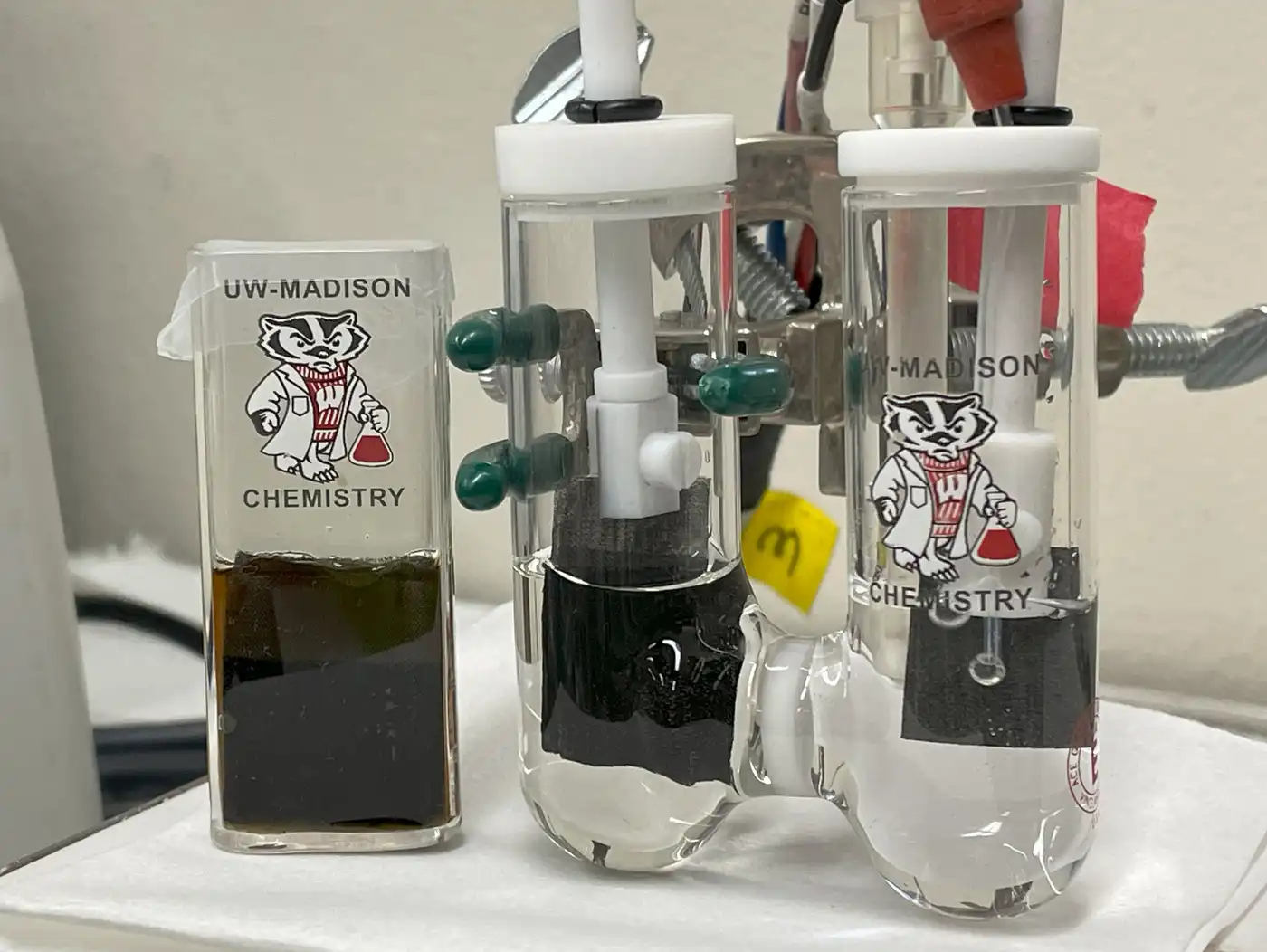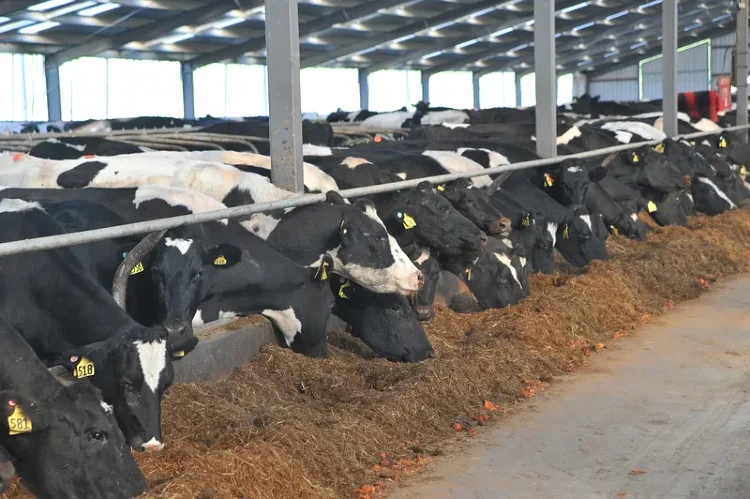In a breakthrough discovery, researchers at the University of Wisconsin-Madison have unveiled a groundbreaking method to efficiently eliminate ammonia from livestock manure. While the technique is still undergoing testing, scientists believe it holds immense potential for significantly reducing the environmental repercussions associated with manure application in agriculture.
Ammonia is a notorious culprit in the creation of nitrous oxide, a potent greenhouse gas, when introduced to soil. Additionally, it contributes to nitrate water pollution, posing further environmental challenges.
Professor Song Jin from UW-Madison described how they harnessed manure from a dairy farm and introduced a porous metallic electrode into the liquid within their laboratory setup. This electrochemical reaction successfully captured ammonium and potassium ions within the electrode.

Subsequently, the researchers submerged this electrode in a clean salt solution alongside a second electrode, applying an electrical charge to release the entrapped nutrients. These nutrients could then be dried and utilized as fertilizer.
Jin expressed their excitement, stating, “We just did the simplest possible thing by just scooping up the manure and urine that you can get from the farm, and right away it worked.”
Rebecca Larson, a professor at UW-Madison specializing in manure, emphasized that many existing technologies for ammonia capture are costly and inefficient to operate. This proof-of-concept process demonstrates greater cost-effectiveness.
She highlighted an essential aspect of the process, noting, “They were able to recover not only the ammonia nitrogen, but they’re able to convert organic nitrogen through the process into nitrogen so that we can collect it as well. That’s not something we’ve been able to do with any other technology.”
According to an environmental analysis conducted by Larson, a 1,000-cow dairy farm could potentially capture 50 percent of ammonia from manure, thus significantly mitigating the environmental impact associated with nitrates.

Jin also suggested that the efficiency of ammonia capture could be enhanced by subjecting the manure to the process multiple times. Furthermore, the process yielded other valuable nutrients and byproducts. In addition to ammonia capture, the electrochemical reaction generated hydrogen, which could be utilized as fuel or converted into hydrogen peroxide, a common disinfectant.
Interestingly, a cost analysis indicated that the process might generate revenue for farmers. Jin pointed out, “The chemical we produce, the hydrogen peroxide, in fact, is very valuable.”
The researchers believe this process could complement the use of biodigesters, currently employed to capture methane, a potent greenhouse gas, from manure. While biodigesters don’t capture ammonia, they leave behind an effluent that could potentially undergo the electrochemical treatment developed at UW-Madison. Further investigations will explore this possibility, as Jin mentioned.
It’s worth noting that the researchers have already applied for a patent for this innovative process, which has so far shown success only in laboratory settings.

Scaling up this process to farm size will require both time and financial investment. However, Larson expressed her enthusiasm, saying, “We see a lot of things at lab-scale that might not make it all the way to full-scale, but I’m particularly excited about this. We don’t have a lot of ways to capture ammonia that have been successful before.”
The research has garnered substantial interest since its publication earlier this month in the journal Nature Sustainability, indicating its potential for positive environmental impact and agricultural innovation.
Why This Could Be Important: Environmental and Agricultural Impact Analysis
If this innovative discovery from the University of Wisconsin-Madison proves successful on a larger scale, it could have far-reaching benefits for both the environment and farmers, in general.
Firstly, this could potentially reduce both carbon emissions and nitrate pollution.
Reduced Greenhouse Gas Emissions
By efficiently removing ammonia from livestock manure, we can decrease the production of nitrous oxide, a potent greenhouse gas. This means a smaller carbon footprint for agriculture, which is a significant contributor to climate change.
Less Nitrate Pollution
The reduction of ammonia also translates into lower nitrate water pollution, preserving the quality of our water sources and safeguarding aquatic ecosystems.
Inarguable, those are both vastly important, but it’s the benefit that this discovery could bring to farmers that has the potential to drive it into mass production.
More To Discover
- NY Attorney General Sues Pepsi Over Alarming Plastic Pollution in Buffalo River, Endangering Public Health and The Environmental
- Water Batteries: The Safe, Affordable, and Eco-Friendly Energy of the Future That Won’t Explode
- Amazon’s Green Hope Reduced to Ash: Arson Devastates Three-Year Reforestation Endeavor
- Solar Balconies: Should U.S. Renters Follow Europe’s Trending Green Tech?
Farmers Decrease Overall Costs
This new method appears to be more cost-effective than existing technologies for ammonia capture. It could help farmers save money on waste management and fertilizer expenses.
Farms Can Increase Revenue Generation
The process not only extracts valuable ammonia but also yields hydrogen and hydrogen peroxide. These byproducts could potentially generate additional income for farmers.
Farmers Can Market Their Improved Sustainability
Implementing this technology alongside biodigesters could create a more sustainable and environmentally friendly approach to managing manure on farms. Farmers can reduce their environmental impact while potentially increasing their bottom line.
In summary, this discovery has the potential to revolutionize how agriculture manages manure waste, offering a win-win scenario for the environment and farmers alike. It could lead to cleaner water, reduced greenhouse gas emissions, cost savings, and even new income streams for agricultural operations.















